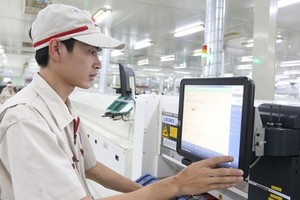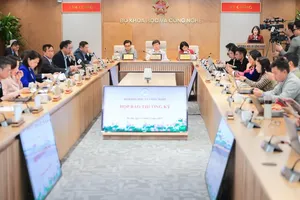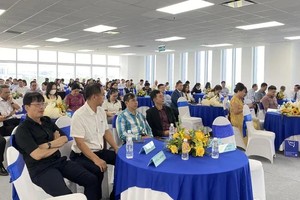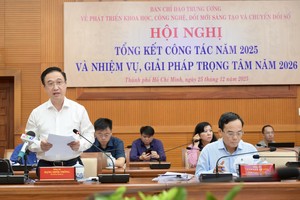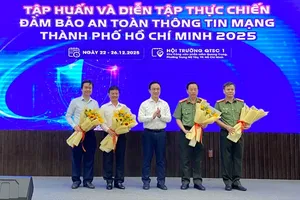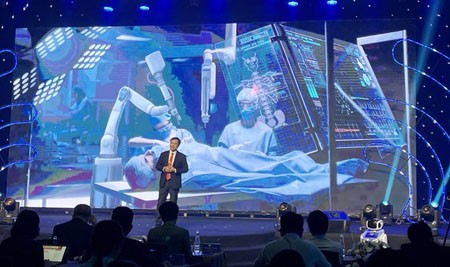
Commenting on the 5G piloting programs in major cities of Vietnam like HCMC, Deputy Director Le Quoc Cuong said that seeing the positive results of those programs, Viettel, VinaPhone, and MobiFone all have a plan to expand the coverage to 13 inner districts of HCMC and the central area of Thu Duc City.
Obviously, this has provided a valuable chance for residents there to enjoy the high speed technology. It also opens the door for IT businesses located in HCMC to develop corresponding apps making use of cutting edge technologies like Internet of Things (IoT), Artificial Intelligence (AI). It is expected that more and more software pieces in the field of healthcare, traffic, and education will be introduced to the public in the near future.
When being asked about the preparation of HCMC to implement this attractive 5G technology in establishing a smart city model and digital economy, the Deputy Director shared that wisely-invested 5G infrastructure will no doubt become the strong foundation for other developments in different industries.
Therefore, at present the municipal authorities are working with telecoms businesses to construct more 5G facilities around the city as well as suitable 5G applications, especially those serving the city’s AI program.
The Deputy Director then reported that in HCMC now, there are nearly 10,600 Base Transceiver Stations (BTS) for 3G and 4G networks, ensuring the quality of calls and Internet access on mobile devices for users. Based on this, HCMC is going to support telecoms businesses to install the 5G network in 2021.
The new BTS will be eco-friendly and modern, built as the result of mobilizing possible resources in the society. They will be shared among related businesses.
However, Deputy Director Cuong mentioned that not all areas in HCMC are the focus of 5G development. The priority should be in such locations as Saigon Hi-tech Park, the urban area near Vietnam National University – HCMC, where high interactions and real-time communications are vital.
The municipal authorities encourage IT enterprises to invest money and labor in developing applications for smart traffic, construction management, environment monitoring, and tasks in the city’s AI programs. State agencies can then hire available apps or order new ones to use.
When weighing the importance of 5G technology in the digital transformation process and smart urban area forming, the Deputy Director commented that the availability of the digital infrastructure is one critical factor to decide the success of both the digital transformation process and the creation of a smart urban area.
Therefore, the city needs to make sufficient investment in this field to be ready for the use of 5G technology in forming Internet connections and accessing data. These investments include a wider coverage of 4G and 5G networks, appropriate telecoms equipment, powerful computers, and useful software.
With proper preparation for the use of 5G technology, the digital transformation process and smart urban area development in HCMC will be carried out much faster and more sustainable, concluded Deputy Director Cuong.













